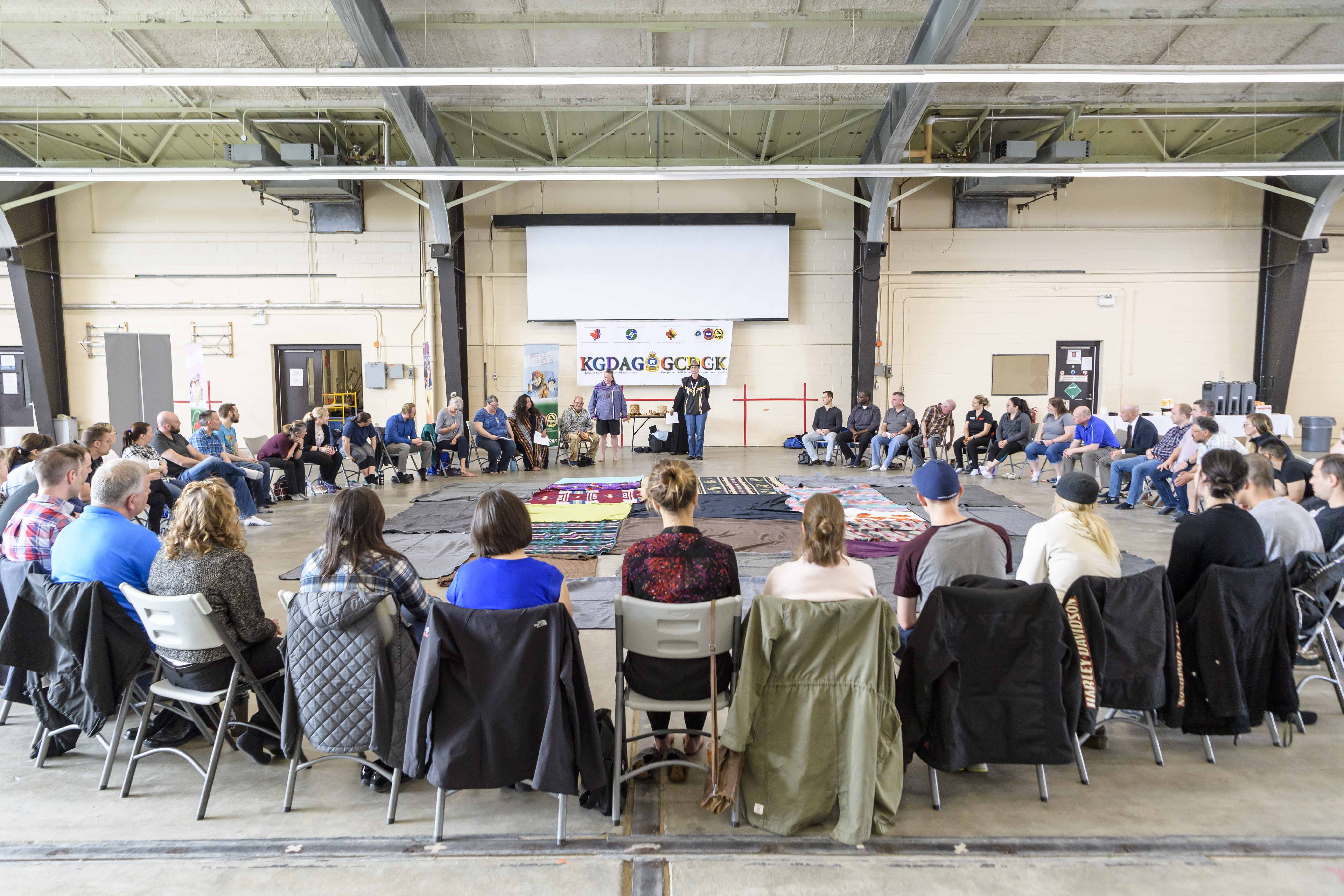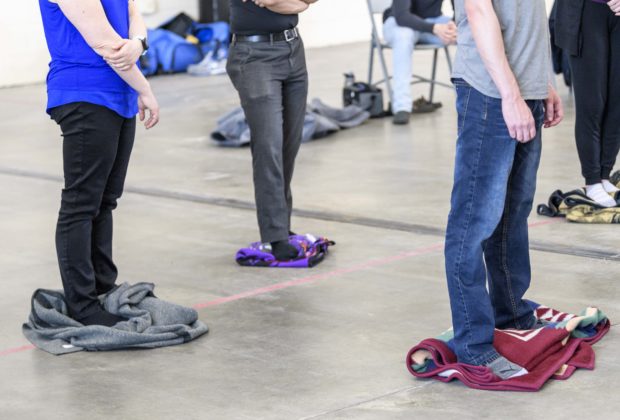
I assemble with the afternoon group of the CFB Kingston KAIROS Blanket Exercise (KBE) at Thompson Drill Hall on May 23, 2019. We take seats in a large circle. Lynda Gerow, lead facilitator for the KBE, welcomes us. Heavy rain drowns out her voice before she is given a microphone. We are on shared traditional territory of the Mohawk and Ojibway.
An Elder comes to each of us with sage burning in an abalone shell. We smudge to the rain’s white noise, until a call rises like a clear bell, echoing across the hall. It is answered by another voice, then another, rising and falling across the circle.
The rain quiets as if to listen, gently falling as the dark smoke rises.
We sit shoeless with the name of a much-loved child in our pockets, quietly curious. A myriad of blankets is spread across the floor before us. They represent Turtle Island (Canada, the U.S.A., and Mexico), and we are the Indigenous people here before the settlers came. We are invited to explore Turtle Island. We circle. We chat. We trade. Some people are given coloured cards.
The KBE is a unique 90-minute workshop that covers more than 500 years of Canadian-Indigenous history to educate and foster understanding about our shared past. Along the timeline, Canadian laws are passed that forbid certain aboriginal practices. Our cultural and spiritual objects are taken from us. Our movements are restricted as the blankets are kicked apart. Empty handed, we shuffle our feet on the uneven piles.
The coloured cards are defined. They represent those who died from Small Pox and other European diseases, those who married non-indigenous people and lost their aboriginal status, those women missing and murdered. All with these cards are told to return to their seats.
One woman is told she represents all of the children taken from their families to residential schools and those stolen during the 60s Scoop. She is moved to stand apart from the rest. The names in our pockets, the beloved children, are taken from us and placed on a blanket beside her.
They are gone now and we may never see them again. Many will die. Most will grow up not knowing what “family” means or what it means to be Indigenous. Their failures are a great embarrassment to their elders. We are told to turn our backs on the woman, to reflect that embarrassment, to show her isolation.
Starvation, suicide, government erected borders, new definitions on who qualifies for aboriginal status. The list goes on, and many must return to their seats.
After the ceremony, a feather is passed. We are given the freedom to speak openly. There are tears. There are apologies, and gratitude. We are asked to think about our emotional and intellectual experience of the ceremony, about how Indigenous and non-Indigenous people can connect in meaningful ways that contribute to improving the wellbeing of all Canadians.
June is National Indigenous History Month and June 21 is National Indigenous Peoples Day. To find out about events in Kingston, click here.

